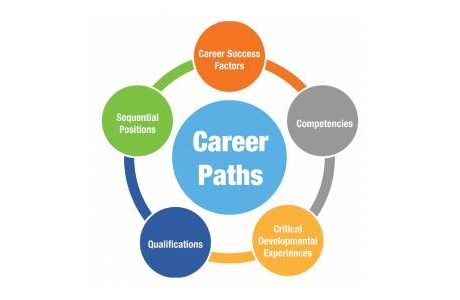Most human resources managers are looking for people with at least two years of working experience. It may frustrate student and fresh grad when they are applying for entry jobs. These days a lot of young people apply for unpaid internships in order to get some experience that they can add to their CVs.
This system doesn’t care much about people in their 20s who have to pay bills and student loans. On top of that, there is no guarantee that an internship will provide you with valuable experience. And, that after completing it, you will get a real contract with all the perks.
When you apply for a job, you should expect to learn everything from scratch anyway. So, why do you need to pay for your experience? You have the chance to find an entry-level job without years of experience and actually get paid for it. That’s how you can impress the HR manager during the first job interview in your life:
Write A Powerful CV
Your customized resume can help you stand out from the crowd. Usually, a recruiter has thousands of them in the email box. According to James Cook University Online, HR managers spend only seven seconds reviewing an individual resume. Don’t waste the time of your potential boss and make your CV look as professional as possible. One page of your resume should contain all the information: a summary on the top, highlights, accomplishments, experience, and education.
If you send a digital copy of your CV, attach your cover letter and the link to your LinkedIn profile. Do this even if it is not required since it will show the HR manager that you are a very diligent and hard-working person. It is recommended to write a personalized cover letter – use the company name and describe yourself as a perfect candidate depending on the requirements. Indeed, writing a personalized cover letter and modifying your CV every time you are applying for a job might take a lot of time. On the other hand, this practice will give you a better chance to get a response from your potential employer.
Students get lost when it comes to the ‘work experience’ section. You can include your summer/Saturday jobs, volunteering experience, school and university projects, work shadowing, and work placements. Feel free to treat your extra-curricular activities like jobs.
If you don’t have any volunteering experience, maximize your education and list relevant skills and strengths. Also, you can ask your professor to give you a reference in case you are applying for a job that is somehow related to your degree.
Before applying for a job, take care of your online presence. Delete party pictures and silly selfies since there is a high chance that your recruiter will do a little bit of online digging. Use your social media accounts to your benefit. For instance, you can show off some of your skills on a portfolio website, Instagram or Facebook. The most important rule is to keep it professional.
Apply For The Right Job:
Applying for a position related to your studies will increase your chances to get a job. If you find a job ad that sounds interesting, but you have no idea what the company is dealing with, don’t bother and keep looking for something that can match your qualifications.
Do Your Research:
You should prepare before going for a job interview. Learn more about the company and find people on LinkedIn who are already working there. That’s how you can get an insight into a job you will be doing.
Most probably, the HR manager will ask you what you know about their company. It is the way they check how interested you are in this job. Besides telling your potential employer the basic facts that you will learn from the company website and social media channels, make sure to compliment a company.
Behave Appropriately:
If you really want to get that job, you should take the whole hiring process seriously. Learn the basic interview etiquette:
Show on time and dress appropriately. Style your hair and don’t use strong perfume.
Let the interviewer lead the conversation and don’t interrupt. You will have the chance to ask all your questions at the end of the meeting.
Sit properly and use your body language to communicate better with HR. For instance, avoid crossing your arms and staring at the floor when you answer the question.
The bottom line:
Every student and fresh grad can get a well-paid job. To increase your chances of getting a job during or after college, write a powerful CV and cover letter. Also, make sure you have a positive online presence; delete photos and posts that paint you in a bad light.
Apply to the job that is relevant to your qualifications and skills. Before going for your first interview, research a company and prepare to answer the most common job interview questions. The right attitude and behavior will help you find a job faster.
Read Also:






















